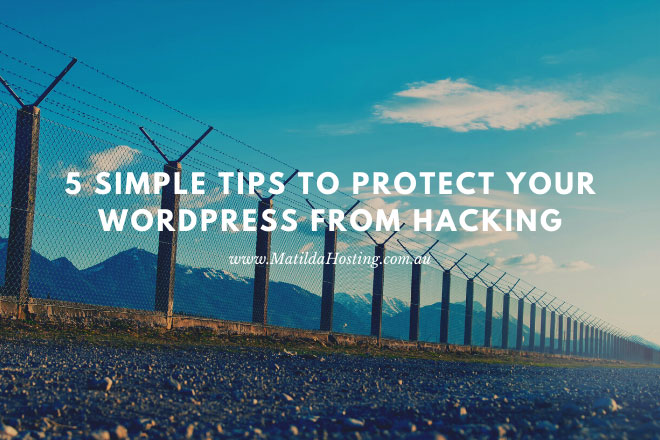
WordPress is one of the most popular content management systems today. Over 33% of websites run on this platform, and because the software is open source, it’s sometimes the target of malware and hacking activities.
5 ways to prevent WordPress hacking
To protect your WordPress website from hacking, you want to activate these steps:
1. Use Strong Passwords and Management
Our best advice is to create difficult and complex passwords (a combination of numbers, letters and special characters), and store them in a trusted password manager. Recommended password management tools are LastPass and RoboForm.
Tips on creating a strong password:
- Don’t reuse your password on multiple sites.
- It should be 12 characters or longer
- Don’t use real words
2. Use the Principle of Least Privilege
Don’t give access to any users you don’t trust. If you need to give access, grant them the basic privilege and remove their access instantly once they’re done working on the website.
3. Keep Plugins Secure and Updated
Make it a habit to regularly update the plugins installed on your website. Avoid installing plugins that are not both secure and necessary as they can cause vulnerabilities and problems to your website.
4. Use a Hardening Method
Use hardening methods to protect your WordPress website from hacking, such as:
- Adding additional allow/deny rules via your .htaccess file
- Restricting login URLs to specific IP range(s)
- Protecting your wp-config file
- Preventing image hotlinking and directory browsing
- Not logging in on public WiFi or not using VPN on public WiFi
- Deleting unused WordPress plugins and files
- Keeping your server clean
5. Enable a Website Firewall
Enabling WordPress firewall can protect your website from hacking incidents. It essentially helps to filter out the good requests from the bad ones (hack attempts, exploits, DDoS attacks, etc.).
A WordPress firewall can:
- Prevent a future hack
- Add a virtual security update
- Block brute force attacks
- Mitigate DDoS attacks
- Optimize WordPress performance
Following these tips may not completely secure your website but they will help prevent and reduce the risks of your website being hacked.